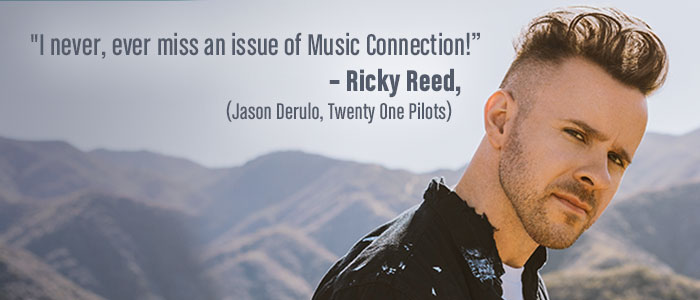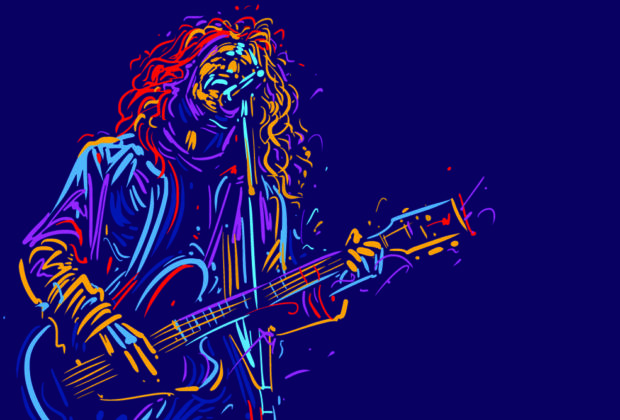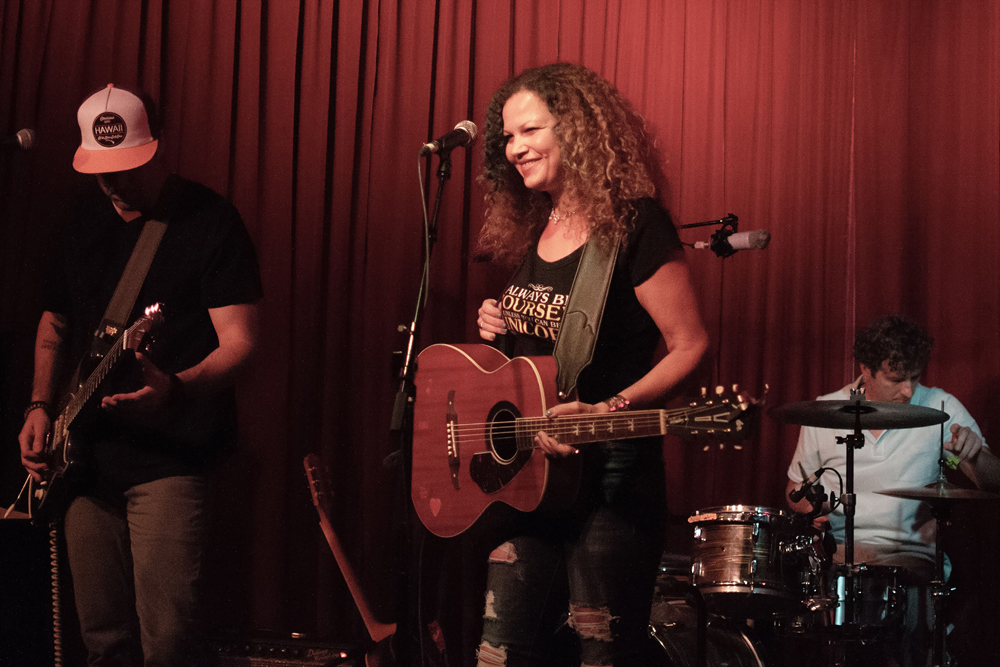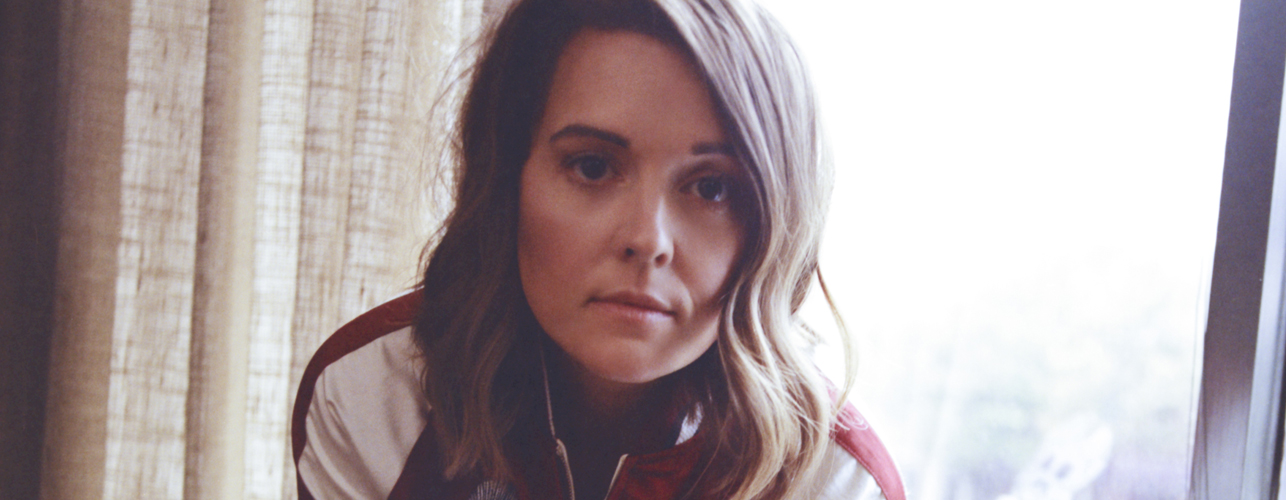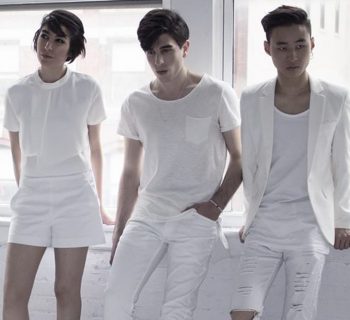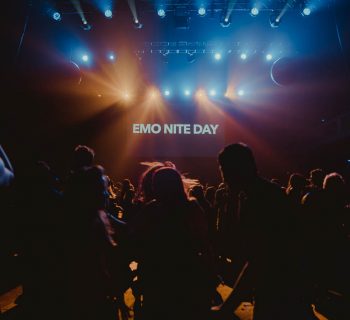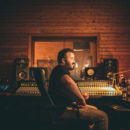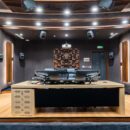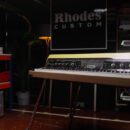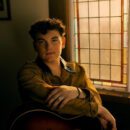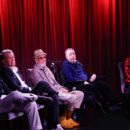Most artists aspire to be a “star.” To accomplish that you must stand out––apart from all the other artists doing the same thing. The success stories in the music business usually involve artists who know who they are and used that knowledge to create a signature sound. But, the truth is, most artists emulate well-known acts they admire. Unfortunately, that will not help you succeed––unless you’re in a cover band or tribute band. In fact, it will make you just like everybody else…and you will become invisible. To help our readers understand how important it is to find “yourself,” Music Connection speaks with four experts who give you tips on how to find your own artistic identity and signature sound.
 HUNTER SCOTT
HUNTER SCOTT
hunter@lafamos.com
Hunter Scott founded LaFamos PR, Branding & Social Media over 10 years ago. His company specializes in helping artists find their identity and creating a brand. LaFamos creates a story and experience for artists that engages current fans and draws in new ones. He has helped numerous independent artists find themselves and find success.
Why should artists develop their own identity and sound?
You want to be distinctive. It’s the kiss of death if people can’t recognize you in a crowd. You’ll just blend in and become invisible.
What’s your process in developing a unique artist identity?
We use a wide-ranging questionnaire. We ask why they do what they do? What they play? Who they sound like? Who they admire? And, what their goals and hobbies are? Their hobbies often reveal their uniqueness.
How encompassing is your approach?
It involves everything––it’s the whole package. In the days of social media, you have to cover everything. It all has to connect. Videos and promo photos are very important today. People like visuals. They should project the artist’s personality and help tell their story.
How important is social media regarding an artist’s identity?
Today, it’s very important, it all has to come together. It allows artists to connect with people they may never have met before. If you do it right, it can create a community that follows and supports you for years.
What’s the key to establishing an artist’s identity?
It’s about the story and staying consistent. We help artists build their story. Some acts are more unique to begin with, while others need help. Ultimately, artists need to develop their own brand.
How can artists create a brand?
It involves their music, personality and interests. There are different options available to tell a compelling story and make it unique. Artists should envision what their brand looks like, and how it relates with people.
Would you work with any artist?
No… we are selective. If I hear potential, I might take it on. But, if an artist is just starting out, early in their career, they may need time to figure out who they are. •
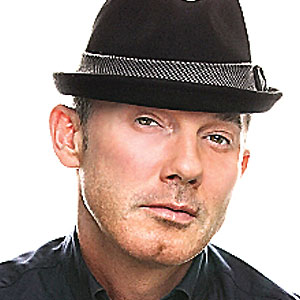 STORM GARDNER
STORM GARDNER
gardnerstorm@gmail.com
Because of his uncanny ability to help artists find their true identity and sound, Storm Gardner has been called an “Artist Whisperer.” He has worked with dozens of superstars and performed over 600 songs for the TV show Glee. A finalist on the X Factor (UK), he worked with Tom Cruise on Rock of Ages, singing 16 of the 19 tracks in the movie. The last few years, he has worked as an Artist Advisor, Performance Coach, and Casting Producer for American Idol. A Grammy-nominated songwriter, he currently mentors Simon Fuller’s music group Now United, as well as Lola Lennox (the Eurythmics) Annie Lennox’s daughter.
Why is it important for artists to have their own identity and sound?
Shakespeare said, “Life is a stage.” For artists that’s especially true. If you want to succeed, you must come to life with original thoughts, style and attitude. The best artists enlighten the world.
What process do you use to help artists?
I go back to their childhood––that’s where their personality forms. I try to help artists unlock their true voice and identify what’s holding them back, because being an artist is a 24-hour job. Not everyone can be a pop star, but you can have a career if you can find what makes you special. It’s a collaborative process. My goal is to make them leaders.
What’s most critical in establishing an identity?
The way you look, dress and present yourself, artistically and musically, is the most important weapon you have in life. We study the greats, but then have to let it go. Artists need to ask themselves “Who am I?”
But many artists reflect their influences. How do you get around that?
That’s one of the most exciting parts of the journey. It’s been said that “all artists steal.” You need to learn how to listen with your ears and eyes. Influences can help you, but they can also get in the way. You need to add your own personality and perspective to make what you do special and unique.
How do you deal with an artist’s weaknesses?
I believe strength lies in weakness. Vulnerability is sacred. You should celebrate it. That transformation process is the most exciting part––making your weakness your strength.
How personal is your approach?
I had an identity crisis when I performed on Glee. I was singing everyone else’s material and didn’t really know who I was. That inspired me to help other artists find themselves.
But, many artists just want to fit into the music scene and would love working on a show like Glee.
An artist’s job is to stand out––and not fit in.
How can artists incorporate their identity into their live show?
When you study the great ones, you’ll notice that they command a room before they perform. They are the star and everyone knows it. You need to focus on your posture, your movements and how you walk across the stage. It’s a visual thing as much as a musical thing.
Is there a method that you utilize?
Yes… it’s called the “Storm Method.” S is for silence––how do I fill this sound? T is for think about it. O is for observe, R is for relax. And, finally, M is for manifest––what is the actual sound you want to project.
How does that process evolve?
Once we have a good idea of an artist’s identity, I will invite them to perform with me in a safe environment. I encourage the audience to support them. My goal is to give them the confidence they need to engage a crowd.
What kind of artists do you work with?
A lot of them are singers. But I also work with musicians. In fact, I’ve worked with a harpsichord player and I’m currently working with a drummer. All artists, no matter what they do, need to have their own identity and sound.
This is a tough business… and artists are sensitive. How can artists deal with critics?
Criticism is not judgment. You do need to be self-aware and objective about your art and performance, but you can’t let someone else’s opinion sway you from your mission.
How can artists convey their identity in their live performance?
Artists need to understand that they are entertainers. Simply playing your music live is not a performance. Artists need to cover what I call the “Three E’s.” When you perform, you need to be Enlightening, Entertaining and Engaging.
What advice would you give aspiring artists?
Now is the best time for artists to break out of their shell. Don’t be afraid to be controversial. You need to make your audience remember you… Do NOT play it safe. •
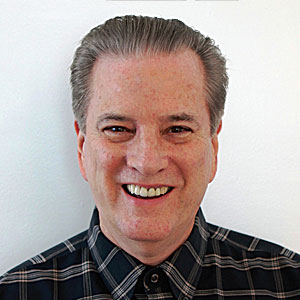 LARRY BUTLER
LARRY BUTLER
larry@diditmusic.com
Larry Butler is a Live Performance Coach. At Warner Bros. Records he was the in-house tour manager for WB artists, helping them perfect their live shows. That led to a position as Artist Development Director and VP of Artist Relations. He is also the author of The Singer/Songwriter Rule Book: 101 Ways To Help You Improve Your Chances of Success. Now based in Nashville, Butler has been focusing on helping artists find their own unique identity.
How important is it for artists to develop their own identity and sound?
It’s ultra-important. You need to stand out if you want to make your mark in this business. You can’t be like everyone else or like some artist who is better known than you. You need your own unique personality so an audience can get to know you.
But many artists mimic acts that they admire.
It’s fine to have references. In fact, it’s a good thing to know the history behind your style of music. But real artists add something to it––something new and different. If they don’t, they’re bound to repeat the past, including the mistakes.
Does that apply to visuals as well?
Yes… You need to take off your musician’s hat and realize you are an entertainer. It involves your clothing, your look, the way you move, everything about you. You have to be consistent, in all aspects of your art, to establish an identity. If you’re all over the place, you will confuse people. Audience members will decide whether they like an act in the first 10 to 20 seconds, when the artist walks on the stage.
What exercises could artists do to develop their own persona?
First of all, it’s not simply about talent. There are a lot of talented artists. It’s about dedication. It has to be your life. Real artists dedicate their whole life to their artistry. You should move one step past your comfort zone––two steps is too far. You should strive to be relatable and identifiable––just outside of what’s expected. If you can do that, people will remember you.
What kind of artists do you work with?
Mostly vocalists. Singers need to develop their own vocal style, otherwise they’ll sound like every other good singer. There’s nothing special about that. They need to develop two voices, one for ballads and another for uptempo numbers. Most importantly, they have to connect emotionally with the material. Audiences don’t care about perfection––they want to feel something. •
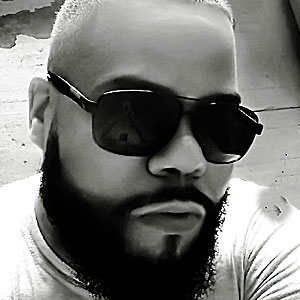 AL SHAW
AL SHAW
alshaw@machinepr.com
Al Shaw is a Public Relations Specialist and Management Consultant with over 15 years of experience in music and media. He is a partner in Machinewerk, with offices in California and London. He also teaches a class called “Artist Identity” for the Independent Artist Program at the Musicians Institute in Hollywood, CA. His current clients include up-and-coming artists, DJs, producers, songwriters, record labels and sound engineers.
Why should artists find their own identity and sound?
It’s important to differentiate yourself. It will help you build a career. Otherwise, you’ll be just like everybody else. It’s especially important for producers to differentiate themselves with identifiable sounds and productions. For example, you can clearly hear the difference between Dr. Dre and Timbaland.
How can artists achieve that differentiation?
You have to study what’s already been done––and then tear that down. Think out of the box, deconstruct it and create something new.
Where should artists start in that process?
It’s about telling a story. What is your point of view? What is your message? How are you different, musically, lyrically, visually, and socially? Artists need to project those things in a unique and artistic way. You need a narrative: Who are you? What is your music about? What is your story?
Can a bio tell your story?
It can, but it’s a struggle for many artists. You need to explain why you chose to be an artist, using interesting descriptors. Why do you do one thing rather than another? People want to know who you are and what your music is about.
Can artists do all that themselves, or should they seek help?
In teaching an “Artists Identity” class, I’ve discovered that a lot of artists need coaching. Many have a hard time breaking through their preconceived ideas or, even worse, have no idea who they are and what they represent.
How encompassing is that process?
It involves everything. You have to pull it all together to create a brand. Today, image is super-important. It has even exceeded talent. But, most important is consistency. Everything you do––including the way you look––will define your identity.
Can you give some examples of artists who did that well?
Adele perfected subtle. Lana Del Ray is more flamboyant. Lady Gaga went through several transitions, starting with a strong image and concept. With all of them, there is an underlying storyline that people found interesting.
Those examples have strong public personas. How important is that?
In public, artists should stay in character. No one likes a boring artist. You should never become normal and boring in public. You should own your persona and cultivate your colorful personality. •
